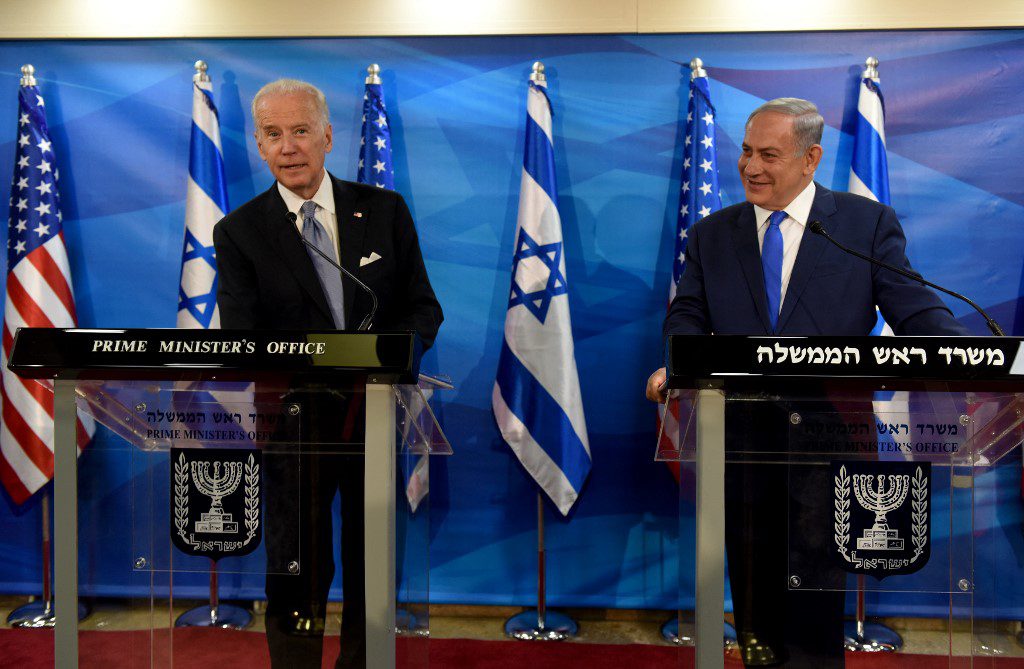The current Israeli-American tension over Netanyahu's attempts to undermine democratic values, presents a chance to reassess the nature of the relationship between the two nations.

Majed Kayali
The United States is highly displeased with Netanyahu and his government, widely considered the most extremist among all Israeli governments since the country’s founding in 1948.
The current tension between the United States and Netanyahu’s government stems from the latter’s attempt to overthrow the political system and undermine the judicial authority and the Supreme Court. The government’s actions aim to consolidate power and establish a full-fledged dictatorship. Moreover, fanatical and discriminatory statements made by extremist racist ministers, including calls for the erasure of the Palestinian town of Huwara and the denial of the Palestinian people’s existence, have only worsened the situation.
Regardless of the details, the re-emergence of tension between the United States and Israel presents an opportunity to reassess the nature of their relationship. It is crucial to approach this review with an open mind, unfettered by the simplistic and dogmatic views that tend to characterise Arab political discourse on this matter.
There are two prevailing schools of thought on the relationship between the US and Israel. The first argues that Israel is a subordinate ally of the United States and merely a tool or base that serves the American agenda in the region. The second argues that Israel wields significant influence over US Middle East policy due to the influence of the powerful Jewish lobby on American politics and economics.
However, a different viewpoint contends that Israel is no longer the strategic asset it once was to the United States. The argument suggests that, over time, Israel has become a liability to American interests in the region.
Upon closer examination, it is evident that Israel’s relationship with the United States does not fit into any of these theories. Historical evidence suggests that the US is too powerful and influential to be controlled by another country or lobby. Over the past few decades, the United States has managed to dictate the limits of Israeli policy and has demonstrated its willingness to invest resources towards advancing its interests in the region.
Conversely, Israel’s reaction to American pressure is a multifaceted struggle, considering a range of objective and subjective factors in reaction to various situations. Therefore, its response is not always easily anticipated.
Israel does not blindly adhere to US policies that do not align with its interests. Instead, it fights back whenever possible, trying to expand its margins to better adapt to American projects and prioritise its own needs. This requires manoeuvring and taking advantage of its special position within the United States.
Analysing the nature of the relationship between the US and Israel makes it possible to gauge the extent of US influence over Israel. The US has multiple tools for leverage at its disposal, including providing significant economic aid, supporting Israel’s technological advancements and enabling military cooperation between the two nations. The US also guarantees Israel’s superiority over Arab nations and offers strategic security and political support.
The US administration does not consistently use these leverage tools against Israel for several reasons. Firstly, the US maintains a close relationship with Israel, which holds a significant place in the American public’s consciousness.
Secondly, the two countries have functional political alliances. Additionally, American leniency towards Israel is influenced by its recognition of Israel’s vulnerability and sensitivity to Israeli society as a settler community that does not have historical roots in its current place.
The American position holds significant weight in this relationship. Israel’s reliance on the United States is vital to its existence. Conversely, American dependence on Israel is a matter of interest. It does not affect the United States’ survival but its regional presence.
Israel cannot obstruct American efforts if there is unanimity on these endeavours in the United States. Historical evidence shows that Israel’s policies adhere to American demands. In cases where there is no conflict of interest, Israel holds sway. When there is a disagreement, however, the United States ultimately resolves the matter in its favour.
The US has forced its will on Israel numerous times, such as during the Suez crisis in 1956, when Israel forcibly withdrew from Sinai and Gaza, and when President Carter compelled Prime Minister Menachem Begin to make peace with Egypt and withdraw from Sinai. In 1991, when the US waged the Gulf War to expel Iraq from Kuwait, the US imposed a condition of silence on Israel. Moreover, despite his opposition, the US invited Prime Minister Yitzhak Shamir to the Madrid Conference.
Furthermore, Netanyahu was pressured into signing two agreements during his tenure. The first required the Israeli withdrawal from most of Hebron, and the second, the Wye River Memorandum, was signed under pressure from President Clinton.
The same will likely happen concerning the tension between the US and Israel over Netanyahu’s attempt to violate democratic and liberal values. Of course, Israel’s commitment to these values, which ties it to the West, is only limited to its Jewish citizens.
Hence, the Israeli-American partnership seems intricate, as evidenced by the tensions between the Bush, Clinton, Obama and Biden administrations and their disagreements with the governments of Shamir and Netanyahu.
In conclusion, Israel gains advantages from the American political system, cultural connections, shared values and the prioritisation of the Jewish lobby’s interests. Additionally, Israel benefits from converging common interests with its American allies. Furthermore, the fragmentation and weakness of Arab states provide Israel with additional strength.
Therefore, it is too early to speculate about a resolution to the current crisis and its impact on the Israeli-US relationship. It is also too early to speculate on the political repercussions this crisis may have for Israel.
DISCLAIMER
The opinions expressed in this publication are those of our writers. They do not purport to reflect the opinions or views of Fanack or its Board of Editors.


